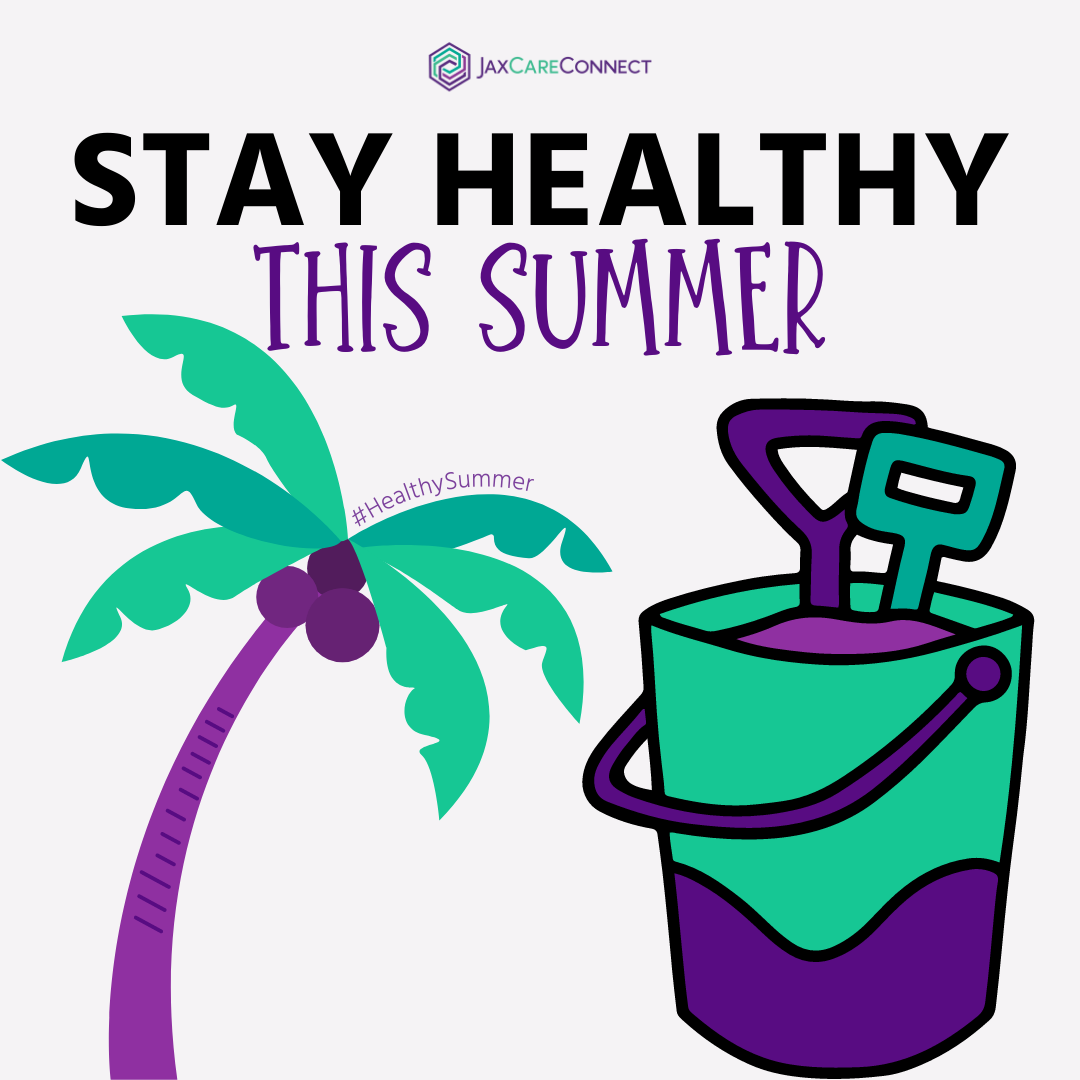Summer is here to stay. Here’s some tips from our friends over at the Centers for Disease Control and Prevention (CDC), The Red Cross, and United States Department of Agriculture (USDA) on how to stay healthy this season.
First, we’re talking skin safety. The CDC recommends wearing both sunscreen and insect repellent. For sun protection, they say to “use shade, wide-brimmed hats, clothing that covers, and broad-spectrum sunscreen” for optimal safety. For protection from the Florida bugs, the CDC urges people to “use insect repellent, wear long-sleeved shirts, and long pants”. Our skin is our largest organ and the first line of defense we have against bacteria and other illnesses. It’s important to protect it for optimal health.
According to the Red Cross, “heatwaves are happening around the world. And due to climate change, they’re getting hotter and longer”. Luckily for us, the Red Cross provides lots of tips on how to beat the heat this summer. Tip 1: Get wet. “In baking hot weather, drenching a t-shirt and keeping it wet can be very effective… You can quickly cool yourself down by putting your hands and feet in cold water”. Tip 2: Be sun smart. They say, “it’s best to avoid going out during the hottest hours of the day”. When that cannot be avoided, “wear (and regularly reapply) sunscreen, cover your head with a hat, and… take regular breaks indoors or in a shady area… Wearing light-colored, loose-fitting clothing will also help”. Tip 3: Be conscious of your consumption. When it’s hot, you are far better off sticking to light, well-balanced, regular meals and drinking lots of water. Limit alcohol intake and increase intake of foods with high water content. Tip 4: Know the signs of heat-related illness and what to do. Heat Exhaustion is when the body loses excess water, salt, and sugars through sweating. It can be treated by moving to a cool place, loosening clothing, putting cool/damp cloths on the body, taking a cool bath, and sipping water. Heatstroke is when the body’s temperature becomes dangerously high, and the body is no longer able to cool itself. Symptoms include confusion, headache, nausea, pale skin, and muscle cramps. If that happens, call 911 right away and work to lower internal body temperature.
Did you know that rates of foodborne illness spike over the summer? Because bacteria multiply faster in warm weather, summer is the perfect time for accidental food poisoning to occur. Keep your picnics and BBQs foodborne illness-free by following these tips from the USDA! Clean your grill. “Scrub the grill clean before use. No access to a faucet? Carry bottled water, soap, and paper towels”. Mind the temperature. Defrost safely. Check internal temperatures while cooking, using the correct method of insertion with food thermometers. Thoroughly cook frozen meat. And BEWARE OF THE TEMPERATURE DANGER ZONE (40-140F). Cut cross contamination by using different cutting boards for raw meat and vegetables and by storing raw meats below ready-to-eat foods in the cooler or fridge.
Hopefully, these tips will help you to survive the summer. Burnt or bitten? Think you have a heat-related or foodborne illness? Talk with your Primary Care Provider (PCP) on how to treat. If you need access to free healthcare in Duval County, contact us here.




